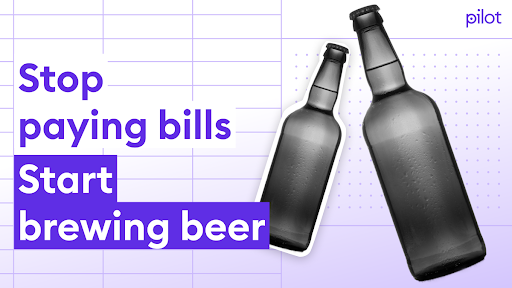What is a controller, and when do you need one?

A controller is a senior manager and the head of accounting. For growth-stage startups that are building out their finance teams, a good controller can help lead the way and may take on some of the responsibilities of a chief financial officer (CFO).
What Does a Controller Do?
Financial controllers aren’t responsible for data entry, but they may be involved in many of the company’s day-to-day financial operations. Depending on the business’s needs and size, a controller will:
- Manage the financial teams. Help hire and oversee the company’s financial teams and operations. The controller may help manage (and is sometimes personally involved in) invoicing, accounts payable, accounts receivable, payroll, bookkeeping, and tax preparation.
- Supervise book closings. Record, reconcile, and approve transactions to close the books each month, quarter, and at the end of the year.
- Establish and review accounting policies. Review, create, and implement the company’s accounting policies based on its industry and the appropriate financial reporting framework.
- Own the financial statements. Be responsible for creating and owning the company’s financial statements.
- Offer strategic financial insight. Act as a middle person between financial and executive teams, helping prepare reports and forecasts.
- Prepare for and respond to audits. Create systems and controls that can grow with the company and provide a clear audit trail. The controller can help prevent internal fraud, detect improper spending, and lead the company through internal and third-party audits. As companies continue to grow, there may be a need for a separate internal audit role.
With a deep understanding of a business’s finances, a controller can help find savings opportunities and increase your profitability or runway.
How Do You Know if You Need a Controller?
A controller likely won’t be your first finance-related hire unless you’ve outsourced your bookkeeping and accounting. However, bringing on a controller early on could help you set up systems and identify strategies that support the growth of your business. You may need a controller if:
- You don’t have clear accounting policies. While accounting software can automatically import transactions, correctly categorizing transactions isn’t straightforward — and the controller will set the policies. For example, understanding when an expense falls under cost of goods sold (COGS) versus operating expenses (OPEX) can help you identify savings opportunities. Or, knowing when to recognize revenue according to GAAP can be important when you’re dealing with investors and creditors.
- You’re growing quickly. A controller can help explain the business’s current financial standing and the impact of different decisions, which can be especially important during periods of rapid growth. As the lead accountant, the controller will also take over some management responsibilities and free up the executives to focus on the big picture.
- You’re concerned about an audit. The controller can also help ensure the company is complying with local, state, and federal regulations and audit-ready. If you’re audited, the controller can take a lead role by preparing reports and responding.
While hiring a controller is more expensive than a bookkeeper or accountant, a good controller can more than pay for themselves through cost and time savings.
Controller vs. CFO
A controller leads the accounting team, may offer hands-on support, and ensures the company’s financial records are accurate. But the chief financial officer (CFO) uses this information in an even more strategic and forward-looking way.
As the senior financial lead, a CFO may:
- Set financial targets, define and track KPIs, and create forecasts that the company can use for budgeting.
- Work with the executive team to understand how the finance teams can support the business’s overall goals.
- Interpret the numbers for the company’s executives, board, and investors.
- Prepare pitches and raise money from additional investors.
Small companies may have a single person who takes on responsibilities that traditionally fall under both job descriptions. Once a company hires a CFO, the controller will likely be a direct report. Large companies with multiple finance departments may have additional layers between a controller and CFO.
A CFO’s salary can be two to three times that of a controller, which can make bringing on a CFO a big hurdle. Companies that may benefit from senior financial expertise, but aren’t ready to take on the added expense, can benefit from outsourced CFO services.
Controller vs. Bookkeeper
While the controller sets the company’s policies and ensures regulatory compliance, bookkeepers implement these policies through the day-to-day work of tracking and recording financial transactions.
Bookkeepers are responsible for:
- Categorizing the transactions
- Reconciling the business’s bank accounts
- Helping the controller prepare financial statements
- Handling bills and invoices
Many of the bookkeeper’s tasks are transactional and administrative, and bookkeepers can benefit from robust software — which the controller may help pick. An accountant, which isn’t the same as a bookkeeper, can dig into the numbers, make recommendations, and perform some higher-level tasks. Both bookkeepers and accountants will be important members of the controller’s team.
One more thing to keep in mind: like CFOs, experienced controllers are often expensive to hire. If your company has reached the point where you need a controller’s expertise, but not the point where the numbers make sense for an in-house hire, consider outsourced controller services as an affordable alternative.
In addition to delivering on-time, accurate books, Pilot offers CFO and Controller services to help young companies grow.





